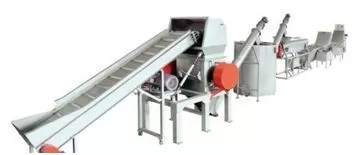Plastic pollution is a pressing issue worldwide, and Slovakia is no exception. Despite its lush forests and stunning landscapes, Slovakia faces significant challenges in managing plastic waste. What measures is Slovakia taking to address this environmental crisis?

Slovakia is implementing a multi-faceted approach to combat plastic pollution, involving public policies, innovative technologies, and community participation. These efforts aim to reduce plastic waste, promote recycling, and protect the environment.
Ready to explore the details of Slovakia’s plastic pollution management? Let’s dive in.
What Are the Key Strategies in Slovakia’s Plastic Pollution Management?
Slovakia’s approach to plastic pollution is comprehensive. It starts with stringent government regulations. The government has banned single-use plastics and introduced policies to encourage recycling. Businesses are also required to adhere to strict waste management guidelines.
These regulations are backed by incentives for companies that invest in sustainable practices. For instance, tax breaks and subsidies are available for businesses that reduce plastic usage or develop eco-friendly alternatives.
How Does Slovakia Promote Recycling?
Recycling is a cornerstone of Slovakia’s plastic pollution strategy. The country has established an extensive network of recycling centers and collection points. Residents are encouraged to sort their waste and participate in local recycling programs.
Education plays a crucial role. Schools and community groups organize workshops and campaigns to raise awareness about the importance of recycling. These efforts have significantly increased the recycling rates across the country.
What Technological Innovations Are Being Used?
Slovakia is embracing technology to enhance its waste management systems. Advanced sorting machines and AI-driven robots are used to efficiently separate different types of plastics. This ensures higher quality recycled materials.
Moreover, innovative recycling methods, such as chemical recycling, are being explored. These methods break down plastics into their chemical components, which can be reused to make new products.
How Is Public Participation Encouraged?
Public participation is vital for the success of any environmental initiative. In Slovakia, various programs are designed to engage the community. From school education programs to community clean-up events, every effort is made to involve citizens.
Incentive schemes also play a part. For example, deposit return systems for plastic bottles motivate people to return their used plastics for recycling. These initiatives not only reduce waste but also foster a sense of environmental responsibility.
What Role Do Businesses Play?
Businesses in Slovakia are key players in the fight against plastic pollution. Many companies are adopting sustainable practices, such as using biodegradable packaging and reducing plastic usage in their products.
Collaborations between businesses and environmental organizations are also common. These partnerships aim to develop and implement innovative solutions to reduce plastic waste.
How Does International Cooperation Help?
Slovakia recognizes that plastic pollution is a global problem requiring global solutions. The country actively participates in international initiatives and collaborations. By sharing knowledge and technologies with other nations, Slovakia enhances its own capabilities in managing plastic waste.
Through these international partnerships, Slovakia gains access to cutting-edge technologies and best practices, helping it stay ahead in the fight against plastic pollution.
What Are the Results So Far?
The results of Slovakia’s efforts are promising. The country’s recycling rates have improved significantly, and the use of single-use plastics has decreased. Additionally, the public’s awareness and participation in waste management have increased, contributing to a cleaner environment.
These achievements demonstrate that with a coordinated effort, significant progress can be made in reducing plastic pollution.
What Are Slovakia’s Future Plans for Plastic Pollution Management?
Looking ahead, Slovakia plans to further enhance its plastic waste management strategies. Future plans include expanding recycling infrastructure, promoting research and development of new recycling technologies, and continuing to raise public awareness.
By staying committed to these goals, Slovakia aims to become a leader in sustainable waste management and set an example for other countries to follow.
Conclusion
Slovakia’s multi-faceted approach to tackling plastic pollution involves government regulations, innovative technologies, public participation, and international cooperation. These combined efforts are making a significant impact, reducing plastic waste, and promoting a sustainable future.
Each of us can learn from Slovakia’s example and contribute to reducing plastic pollution in our own communities. Together, we can make a difference.
